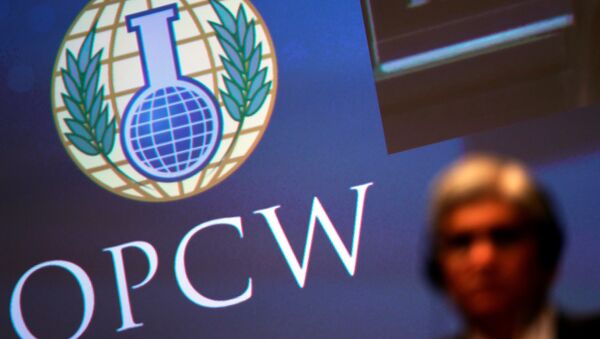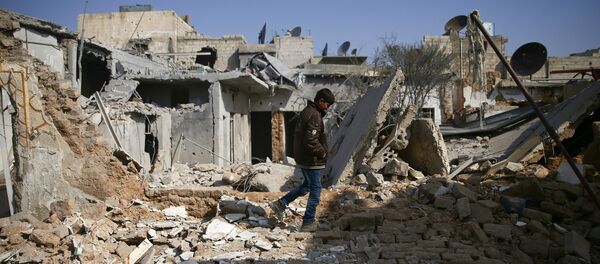Sputnik: Do you think this proposal is politicized? What’s your take on that?
Professor Alastair Hay: Many countries feel, or many feel, me included, that what happened in Syria and what has happened in Syria with the consistent use of sarin and chlorine, requires detailed investigation, and somebody brought to account for the use of the chemical weapons there. I think their use undermines the Chemical Weapons Convention.
The evidence that the previous joint investigation mechanism suggested was that it was used by the Syrian government regime, whether it came directly from President Assad or there were rebels, rogue elements involved – I have no idea. But I think that somebody, if they’d used chemical weapons, have to be brought and to book for it. With regard to what has happened in the UK, I simply know that the nerve agent was used, but as for who used it I have been agnostic on that one. I hear what the UK government has said, pointing a finger at Russia, but the only evidence I am aware of is that it was used; as to who used it or put the chemical there – I don’t know.
Sputnik: How could this decision impact the work of the OPCW, if accepted?
Professor Alastair Hay: What we’ve got and what 193 countries have signed up to is a convention that outlaws the use of chemical weapons; and that means that states have signed up to the fact that they will never use chemical weapons and won’t support anybody who does use them, and not help them in any way. And if that is an agreement you make, then I think it’s important that you uphold it, and if you don’t, what’s the point of the convention in the first place?
The chemical weapons treaty has been so successful in bringing about the destruction of declared chemical weapons and Russia was quite rightly lauded for the fact that she announced a total destruction of some 40,000 tons of chemical agents towards the end of last year. An absolutely major achievement; but I think we are going one step further here, and we’ve got continued use of these agents, and if they can be used without any kind of penalty for those who use them, we have a problem.
READ MORE: OPCW Members Pass Draft Extension of Organization's Powers — UK Delegation
It’s clearly not been sufficient to say that sarin and chlorine have been used. That was first announced back in 2013 with the use of sarin in Douma in Syria, in which some 1,400 people died. And then chemical weapons have been used since then, sarin and chlorine, with apparent impunity. So, what does that say about a treaty, if it can’t be enforced? That’s why I was looking, and hoping, that there might be something whereby the OPCW could say “this was the person, this was the group, or these are suspicions about who used it.”





